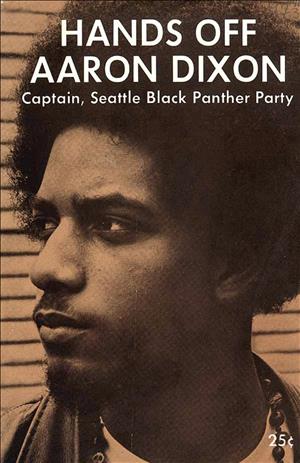On April 20, 1968, during a visit to Seattle, Black Panther Party co-founder Bobby Seale (b. 1936) appoints Aaron Dixon (b. 1949) as captain of the party's new Seattle chapter. Dixon, along with his brother Elmer James Dixon III (b. 1950) and other young activists from Seattle, met Seale and other Panthers the week before on a trip to California, where Seale and Huey P. Newton (1942-1989) had founded the Black Panther Party 18 months earlier in Oakland, and asked Seale for a chapter in Seattle.
Activists Gather
Aaron Dixon, a 19-year-old English major and member of the Black Student Union (BSU) at the University of Washington, along with BSU members Anthony Ware (b. 1951), Larry Gossett (b. 1944), and Carl Miller (b. 1945), and Franklin High School student Trollis (or Trolice) Flavors (b. 1949), had organized a demonstration and sit-in at Franklin on March 29, 1968, to protest the suspensions and unfair treatment of African American students there. Four days later on April 4, Dixon, Gossett, Miller, and Flavors, were arrested for their part in the protest and held in King County Jail, while Ware and Elmer Dixon were held in juvenile detention. Later that day came the news that that Martin Luther King Jr. (1929-1968) had been assassinated.
Attorney (and later federal judge) William Dwyer (1929-2002) won the activists' release the next day, and a few days later many of them, along with other Seattle members of the BSU and the Student Non-Violent Coordinating Committee (SNCC), traveled to San Francisco for the Western Black Youth Conference, where SNCC and the Black Panthers merged. On April 12, while in the Bay Area, the Seattle activists attended the funeral of Bobby Hutton (1950-1968) in Berkeley. Hutton, the first recruit to have joined the Black Panther Party in 1966, was killed on April 6, 1968, two days after King's assassination, in a confrontation with police that also injured Panther leader Eldridge Cleaver (1935-1998).
"We Want a Panther Chapter"
After the funeral and hearing a call to action from Bobby Seale at the conference, the Seattle group resolved to organize a local Black Panther chapter. Before heading back to Seattle, the Dixon brothers and Ware went up to Seale and said "We want a Panther chapter in Seattle" (My People Are Rising). A week later, Seale called and said he would be in Seattle the next day, April 20, 1969. Elmer Dixon picked Seale up at the airport and brought him to the Dixon family home in Seattle's Madrona neighborhood, where Seale presided at an all-day meeting, giving the young Seattleites present instruction on the Panther platform and how to organize a chapter.
Eventually Seale asked, "Who's going to be the defense captain?" (My People Are Rising), and people began pointing to Aaron Dixon. Dixon did not respond immediately, but then accepted the role of leader of the Seattle Black Panthers. The Seattle chapter was the second organized outside Oakland and the first outside California. It would last for 10 years, until 1978 (one of the longest-lasting Black Panther Party chapters), establishing programs that provided free breakfasts for school children, free transportation to visit family members in prison, and a free medical clinic.

